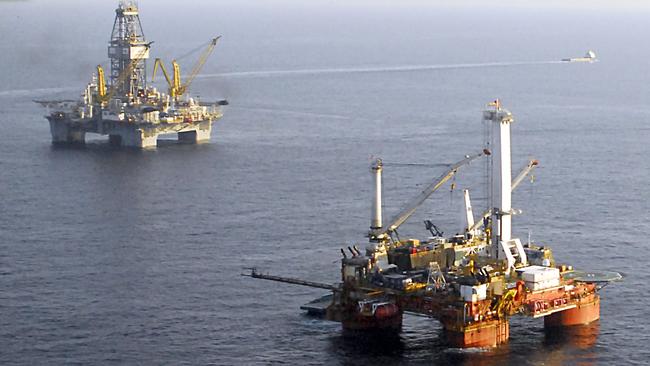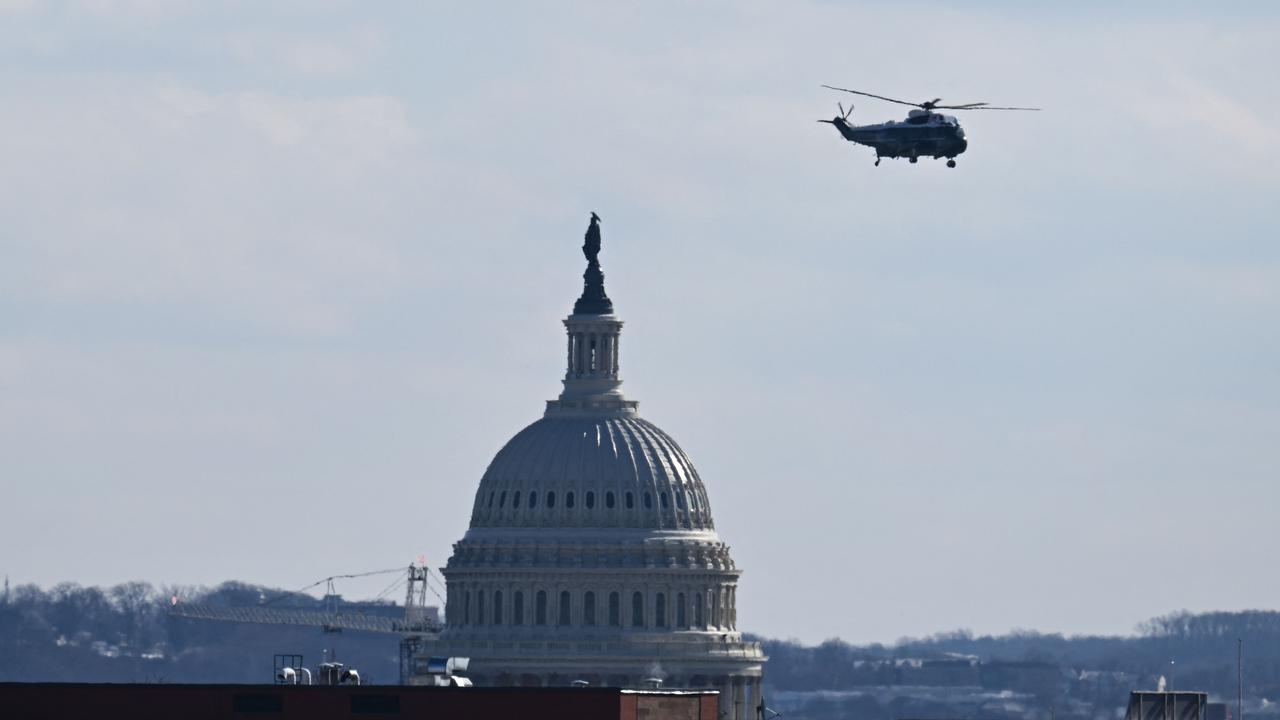‘We pulled the plug’: US oil wells shut
Offshore oil drillers have begun shutting off wells in the US Gulf of Mexico following a collapse in crude prices.

Offshore oil drillers have begun shutting off wells in the US Gulf of Mexico following a collapse in crude prices due to the coronavirus pandemic, and some executives worry that the region’s production may take years to fully recover.
A historic decline in energy demand that has led refiners to make less fuel and caused storage tanks to fill up with crude is pushing Gulf Coast producers to shut down high-cost wells in both shallow and deep federal waters.
The offshore oil sector last year accounted for about 15 per cent of US production, or nearly two million barrels a day, a record level.
Offshore shut-ins and other cost reductions are among the factors pressuring companies such as Schlumberger, Halliburton and Baker Hughes to lay off the oil-field-service workers that they provide to producers on a contract basis. The Gulf Coast drillers’ response to the crisis is expected to have a longer-lasting regional impact than the pullback in onshore plays like the Permian Basin of West Texas and New Mexico.
While offshore companies are accustomed to turning off wells temporarily during hurricanes and other extreme weather, shale oil production is known for shorter cycles from drilling to initial extraction.
Older offshore platforms are at risk of being removed, leaving oil and gas underground — and those fields are unlikely to attract investors willing to pay for costly restarts when prices recover.
“In offshore, we don’t shut in fields, we shutter them. You begin the process of leaving them forever,” said Tim Duncan, chief executive of offshore producer Talos Energy.
Offshore producers pay comparatively high costs to produce and transport crude oil to onshore refineries and storage facilities. They typically offset those costs by collecting premium prices for barrels delivered into Gulf Coast trading hubs in Texas and Louisiana, supported by high demand from US refiners.
Richard Kirkland, chief executive of shallow-water producer Cantium, ordered his company to shut in all production as US prices fell to a level where producers were effectively paying buyers to take crude off their hands.
“We pulled the plug,” Mr Kirkland said. Cantium’s fields, which were producing 20,000 barrels a day, will be shut for at least two months, possibly four.
Gulf Coast refiners told Mr Kirkland they would substitute Gulf crudes with Saudi barrels from two tankers sitting offshore.
“This could very well be the peak for years,” Mr Kirkland said. “We’ve got to survive with our hedge money and cash in the bank.
“We’re not getting much help from anybody.”
Gulf operator Fieldwood Energy decided to immediately shut in the vast majority of its production of 100,000 barrels a day after oil plunged into negative territory this week, chief executive Matt McCarroll said.
“Storage is full. Refineries are full. They don’t want the oil,” Mr McCarroll said.
Offshore drillers and allies including Senators John Kennedy and Bill Cassidy of Louisiana have asked the Trump administration to waive royalty payments for oil production in the Gulf for a year. But so far, the administration has been reluctant to issue any blanket royalty waiver for producers. On Tuesday, US President Donald Trump said on Twitter that he had directed his administration to look at aiding US oil and gas companies, but details of the plan were unclear.
Mr Cassidy said the department had indicated it might not have the legal authority to provide blanket royalty relief to offshore producers. But he said Secretary David Bernhardt had assured him that companies applying for royalty relief on individual offshore leases would be guided through the regulatory processes as quickly as possible. “We have to make allowances to protect jobs,” Mr Cassidy said.
Mr Kennedy thanked the department for its efforts. “We’re desperate to get our oil and gas workers back on the rigs, and royalty relief is one of the smartest, most strategic ways we can do that.”
Major oil companies such as BP and ExxonMobil held about 54 per cent of deepwater leases in the Gulf and produced about 89 per cent of the region’s crude in 2017. Smaller companies held 95 per cent of the leases in shallow waters, and produced 11 per cent of the region’s crude, according to a study by the Bureau of Safety and Environmental Enforcement.
In the previous downturn about five years ago, Gulf operators worried about storage and a global oversupply of crude, and though drilling slowed, few ever shut in production. But the industry had never run up against storage limitations like those that caused prices to crater this week, executives said.
Talos Energy, which expects to produce up to 67,100 barrels of oil equivalent a day this year, said last month it would cut capital spending about 34 per cent from 2019. While oil hedges have protected much of the company’s output from the volatility, Mr Duncan, its chief executive, acknowledged current prices have given him pause. “There’s an oil price where you always consider the option of shutting in, and we seem to be staring at it,” he said.


